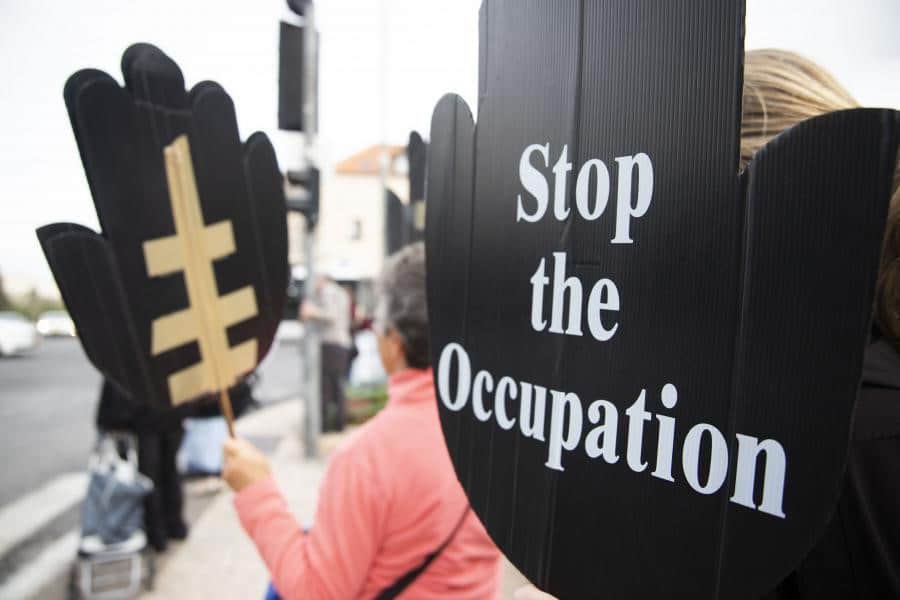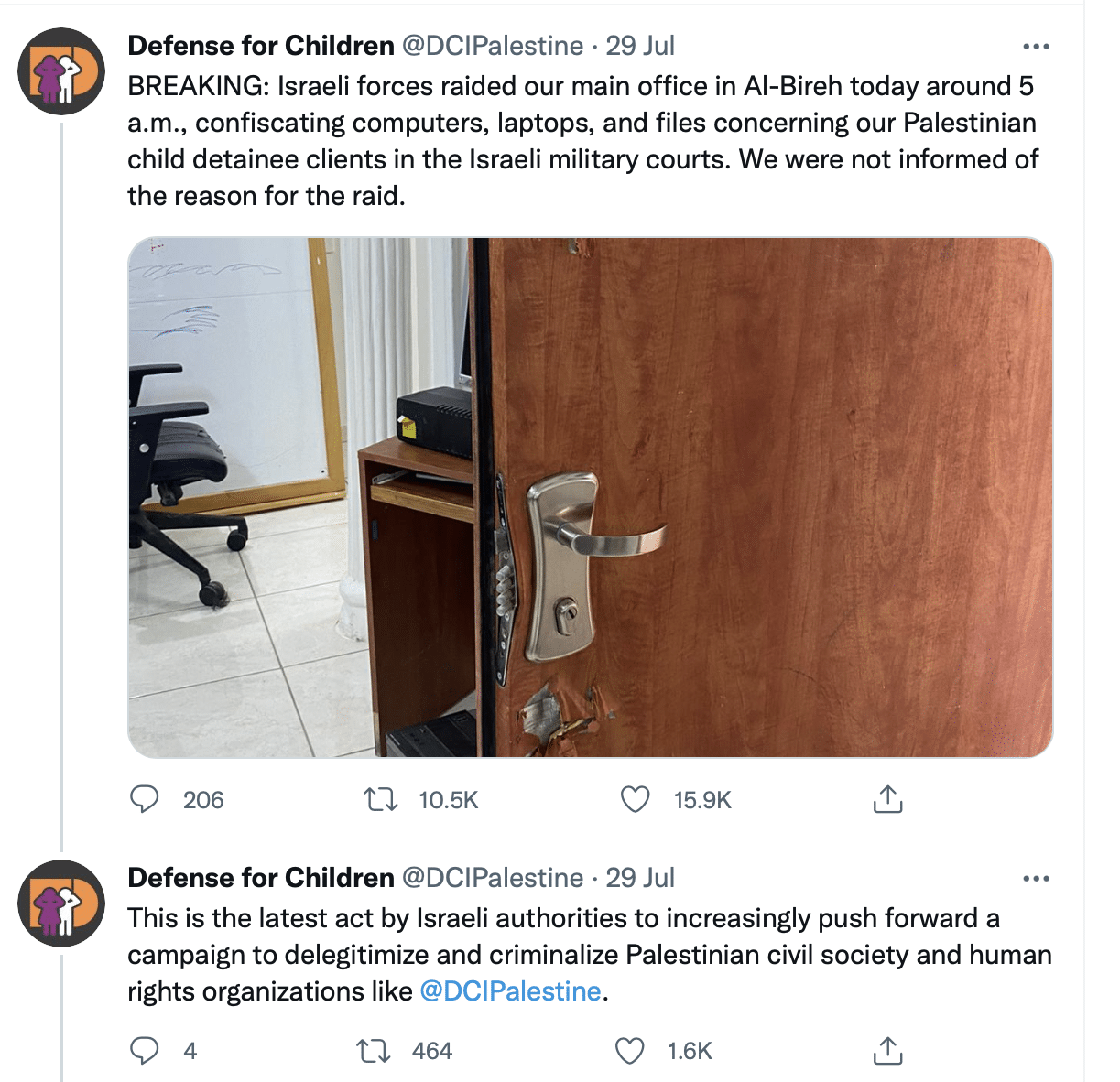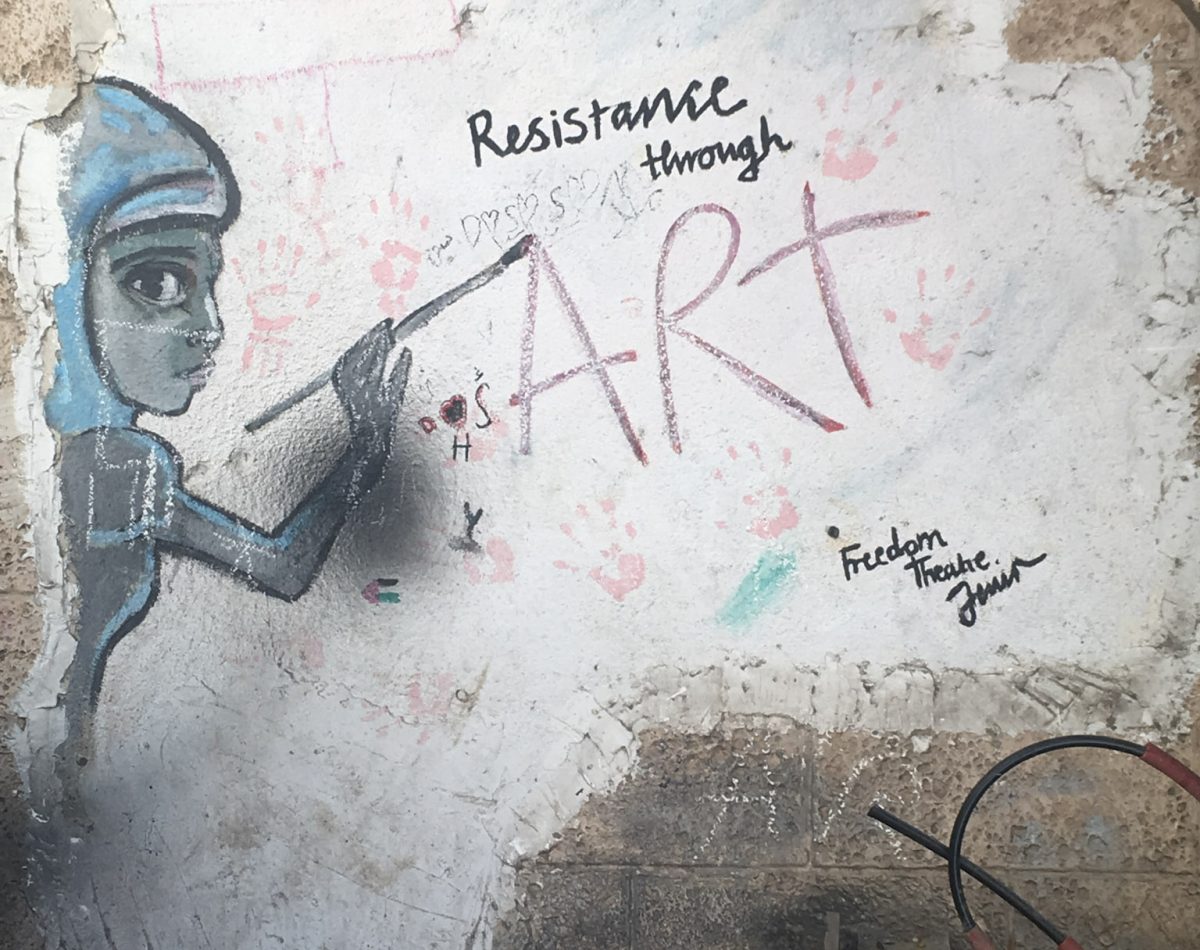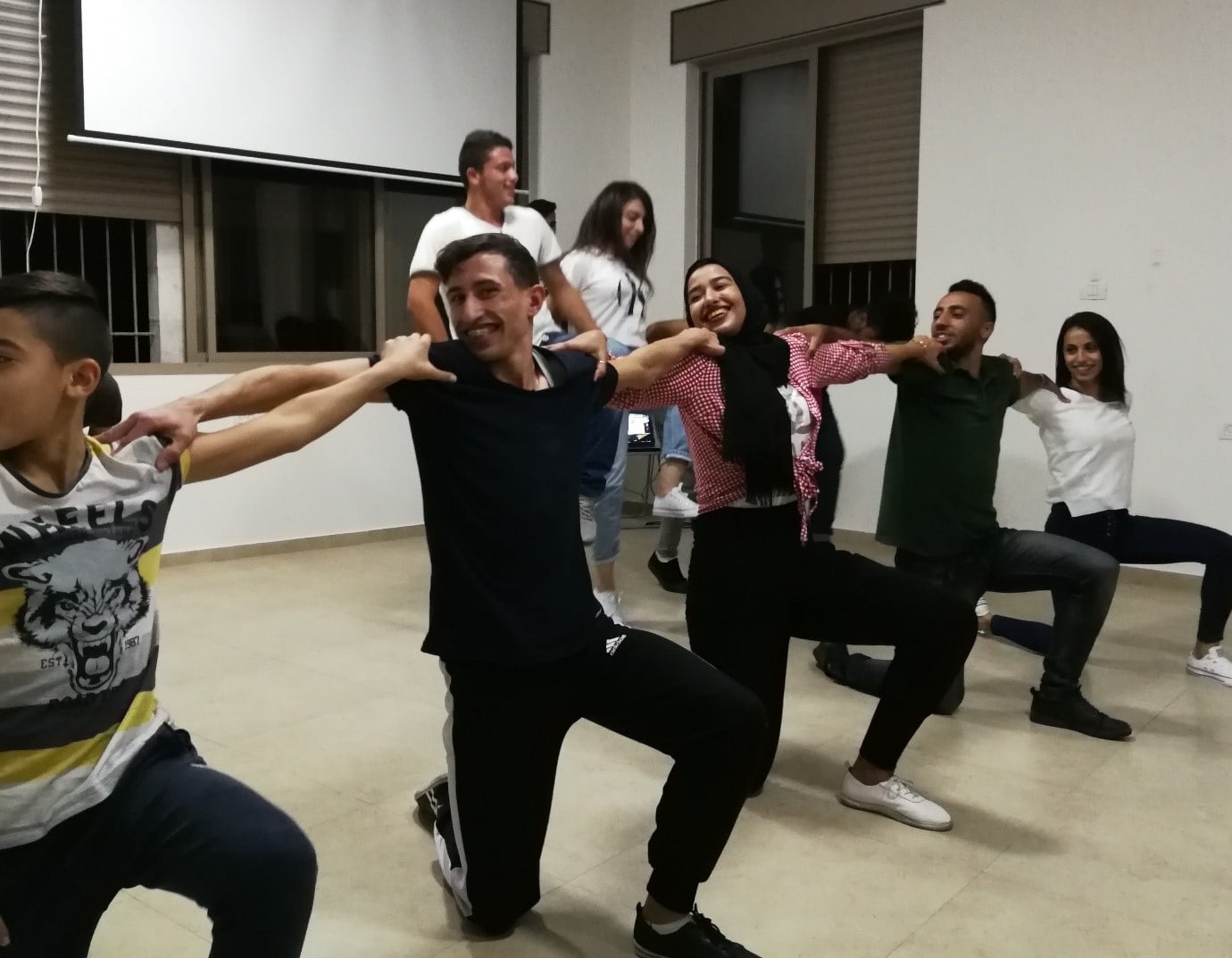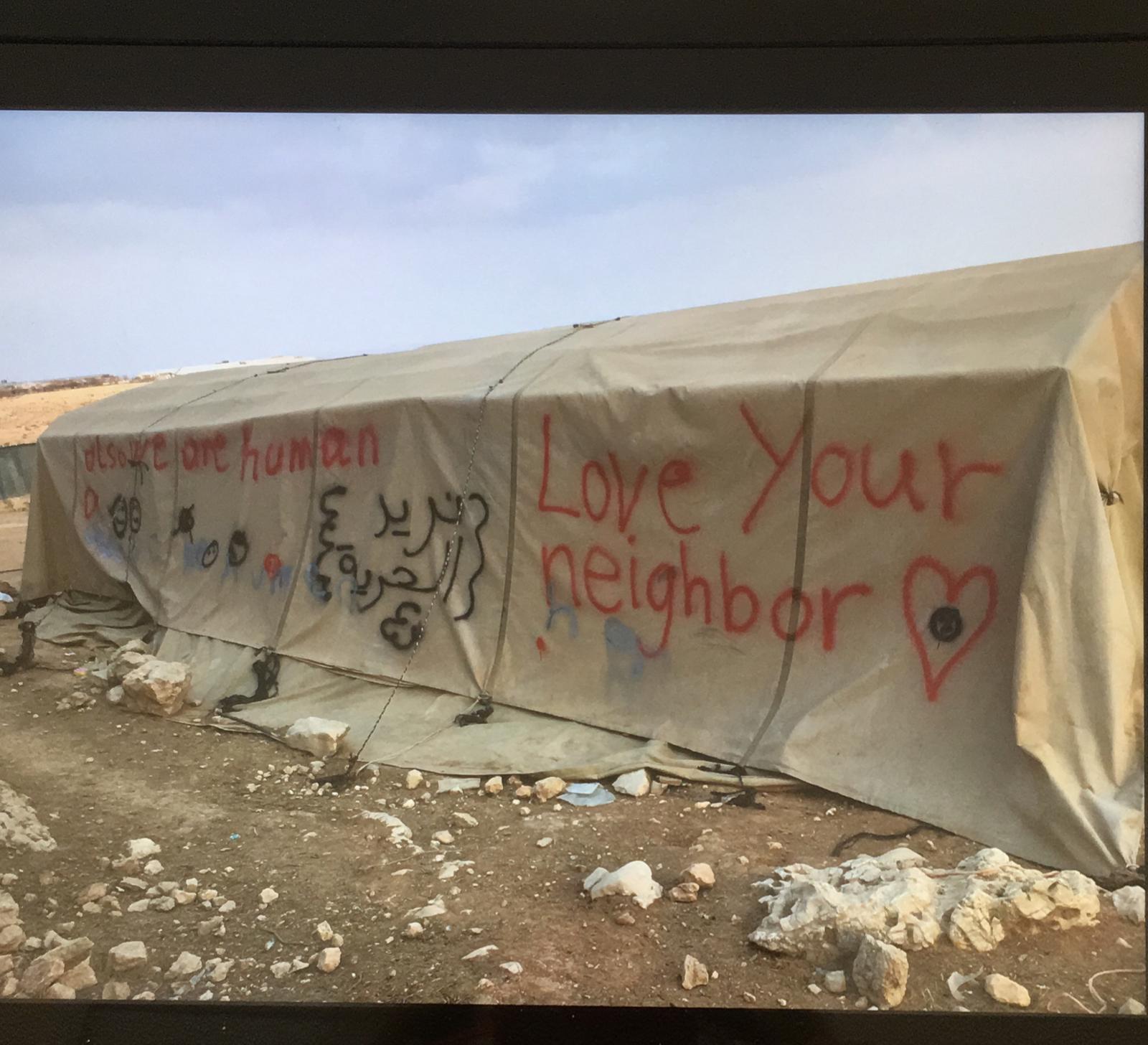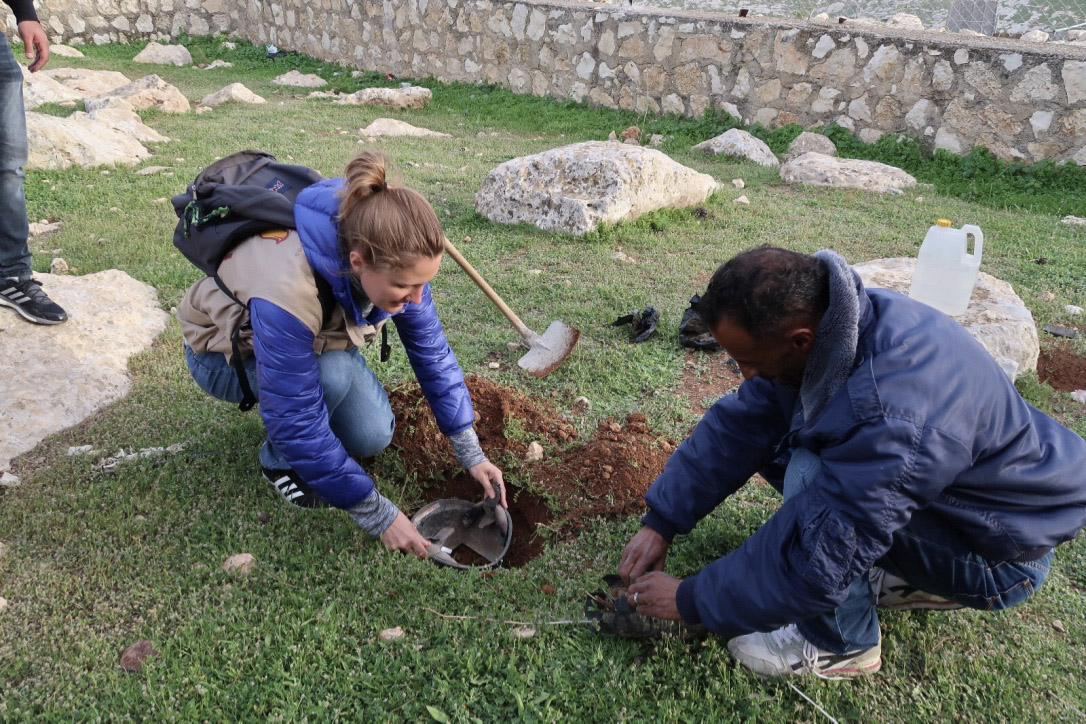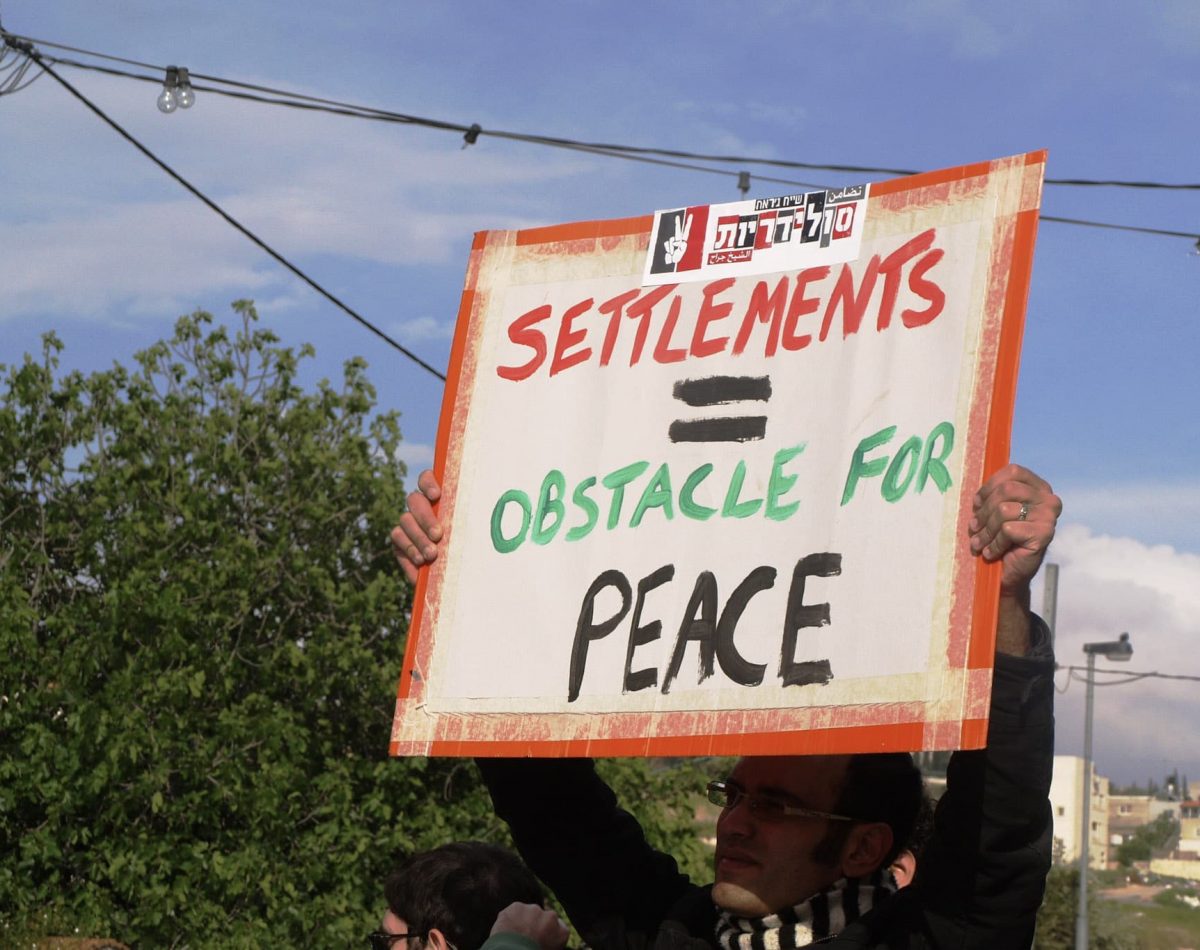Resistance
by EA Belinda – 6 min read
‘Every Friday lunchtime, a group of elderly Israeli women stand quietly for an hour on a central Jerusalem junction holding small signs and banners. Although quiet, their presence provokes a lot of hostility. Their message? ‘Stop the Occupation’. They tell us they have been called many names from fellow Israeli citizens including “Nazi whores”, “whores of Arafat”, “traitors”, as well as simply, “Christians” even though they are almost all Jewish.’ EA Belinda
Resistance to Israel’s occupation of Palestine takes many forms. From the rebuilding and replanting of demolished homes and trees to political art, music and theatre. From protests on the streets to legal challenges in the courts. It involves not just Palestinians but also Israelis who reject their government’s actions.
Disproportionate use of force
Nonviolent direct action from Palestinians resisting the occupation almost invariably attracts a disproportionate response from the Israeli authorities. For example, following mass protests against the forced eviction of Palestinians in East Jerusalem in June 2021, Amnesty International and others reported ‘ruthless excessive use of force’ against protestors, including the unlawful use of weapons, sweeping mass arrests and torture of ill-treatment of detainees.
Repression of protests includes the firing of tear gas, stun grenades, rubber coated steel bullets and live ammunition, and serious injuries are well-documented. Israeli authorities have also been witnessed directly attacking protestors, as shown in this video shared by Israeli human rights organisation B’Tselem in September 2020.
Israeli soldier attacks a Palestinian man for protesting against the establishment of the Israeli Bustanei Hefetz industrial zone, built illegally on Palestinian land
Harassment and Intimidation
It’s not only Palestinian civilians who face harassment and violent attacks. In 2020, the UN Secretary General reported that ‘civil society actors, including human rights defenders and journalists, faced restrictions of movement, and some were reportedly subjected to harassment and intimidation, and in some cases assault, arrest and prosecution.’ The Secretary General went on to urge Israel to ‘ensure that journalists, human rights defenders and civil society actors are able to conduct their activities without harassment or being subjected to legal proceedings that are in violation of international human rights law, and that their rights are respected and protected.’
But little has changed:
This was the tweet from Defense for Children International Palestine (DCIP) on 29 July 2021. DCIP are the Palestinian branch of the global children’s rights movement and are registered both with the Israeli Ministry of Interior and also with the Palestinian Authority, but that did not protect them from being raided. The files taken from DCIP’s offices by Israeli authorities relate to cases of Palestinian children detained and prosecuted in Israeli military courts, a system in which human rights abuses are well-documented.
In August 2021, UN experts condemned the raid and called upon the Israeli Government to fully respect the Declaration on Human Rights Defenders (1998), saying that an occupying power with a true commitment to human rights would ‘protect and encourage’ human rights defenders, and ‘not ostracize, harass or silence them’.
Shrinking civil society space
The UN defines ‘civic space’ as the environment that enables civil society to play a role in the political, economic and social life of societies. But this space is shrinking in Israel and occupied Palestine.
Israeli and Palestinian human rights organisations have come under increasing restrictions from the Israeli government in addition to the restrictions already posed by the occupation. Some of the measures are legislative, for example aimed at preventing Israeli human rights organisation Breaking the Silence giving talks in schools about the behaviour of Israeli soldiers in occupied Palestine, or requiring Israeli human rights groups to declare foreign funding.
Some are administrative, such as expelling the country director of Human Rights Watch or hampering the work of the UN’s Office for the Commissioner for Human Rights (OHCHR) by refusing visas to its staff.
Disinformation campaigns have also been carried out by the Israeli government against human rights organisations including through publications such as ‘Terrorists in Suits’ which claimed to uncover secret links between human rights organisations promoting boycotts, divestment and sanctions against the Israeli government, and terrorist groups. Another Israeli government publication ‘The Money Trail’ also accused several European Union-funded human rights organisations of having ties with terror groups. Both publications were published by an Israeli government department dedicated to attacking those who it saw as seeking to ‘delegitimise’ Israel’s actions.
The new Israeli government has closed the department but its activities seem set to continue. In October 2021, the Israeli government designated six leading Palestinian human rights and civil society groups as ‘terrorist organisations’, effectively banning their activities. The designation authorises the Israeli government to close the organisations’ offices, seize their assets and arrest and jail their staff members, and it prohibits funding or even publicly expressing support for their activities. The announcement was met with widespread international condemnation. The UN said, ‘the decision is a further erosion of civic and humanitarian space and stands to significantly constrain the work of the six organisations which have worked with the international community, including the UN, for decades, providing essential services to countless Palestinians… To date, none of the UN agencies nor AIDA organisations have received written documentation which could serve as a basis for the allegations’.
A young dance troupe from the Alrowwad Centre for Culture and Arts in Bethlehem use dance as a means of resistance. Read their story here.
A community in the town of Susiya carry out a campaign to stop settler violence in their area. Read their story here.


